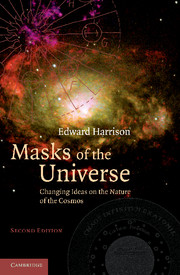17 - All That is Made
Published online by Cambridge University Press: 27 October 2009
Summary
In the tenth and eleventh centuries the Arab dialecticians of the Kalam (the Mutakallimun) were opposed to the Aristotelian science in Muslim theology and professed a theory of extreme theism. Everything, they said, is governed by the will of the Sole Agent. They exalted the power of the Sole Agent by squeezing dry the natural world of all ability to be self-explanatory. The Mutakallimun devised their own interpretation of the atomism of the Epicureans. The Kalam atoms were completely isolated and noninteracting. Not only matter but space also was atomized. Nothing bridged the atomic gulfs except the harmonizing and coordinating power of the Sole Agent.
Al-Bakillani, a disciple of a disciple of the famed al-Ashari (the founder of Muslim scholasticism), lived in Baghdad where he died in 1013. He introduced the idea of atomic time. His ideas were critically discussed in the twelfth century by Moses Maimonides in The Guide for the Perplexed. “An hour,” explained Maimonides, “is divided into sixty minutes, the minute into sixty seconds, the second into sixty parts, and so on; at last after ten or more successive divisions by sixty, time-elements are obtained, which are not subjected to division, and in fact are indivisible, just as is the case with space.”
In al-Bakillani's scheme, atoms divided up space and time. The universe, without continuity in space and time, manifestly was under the coordinating control of the Sole Agent. In an atom of time the universe exists in a fixed state of being.
- Type
- Chapter
- Information
- Masks of the UniverseChanging Ideas on the Nature of the Cosmos, pp. 275 - 288Publisher: Cambridge University PressPrint publication year: 2003

